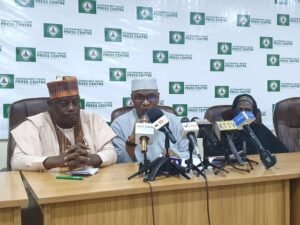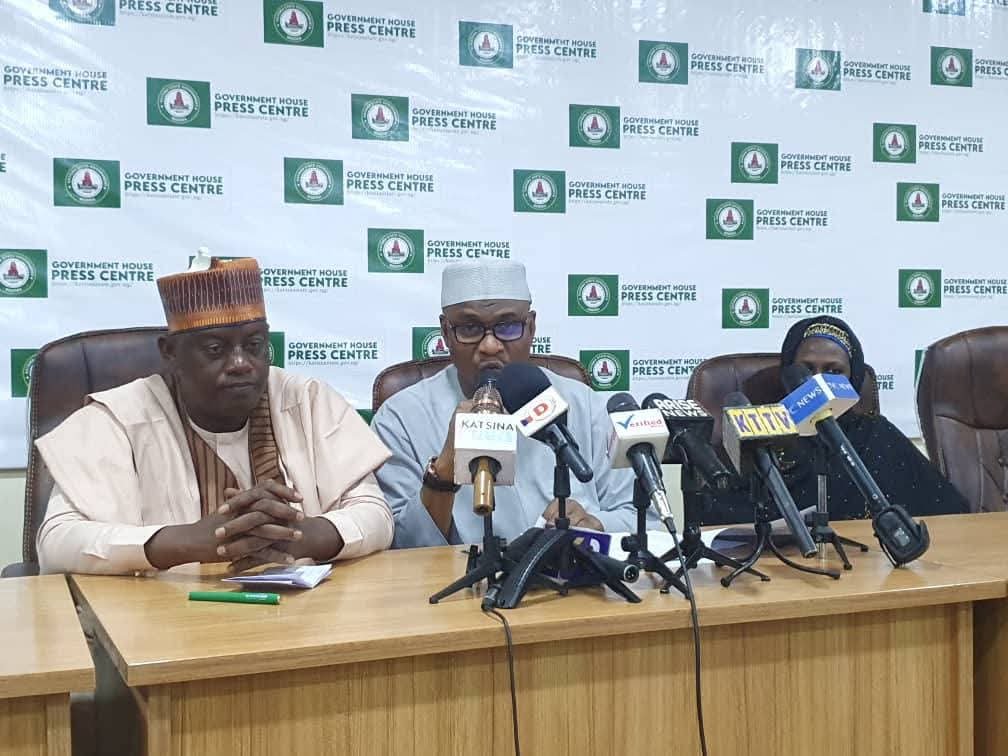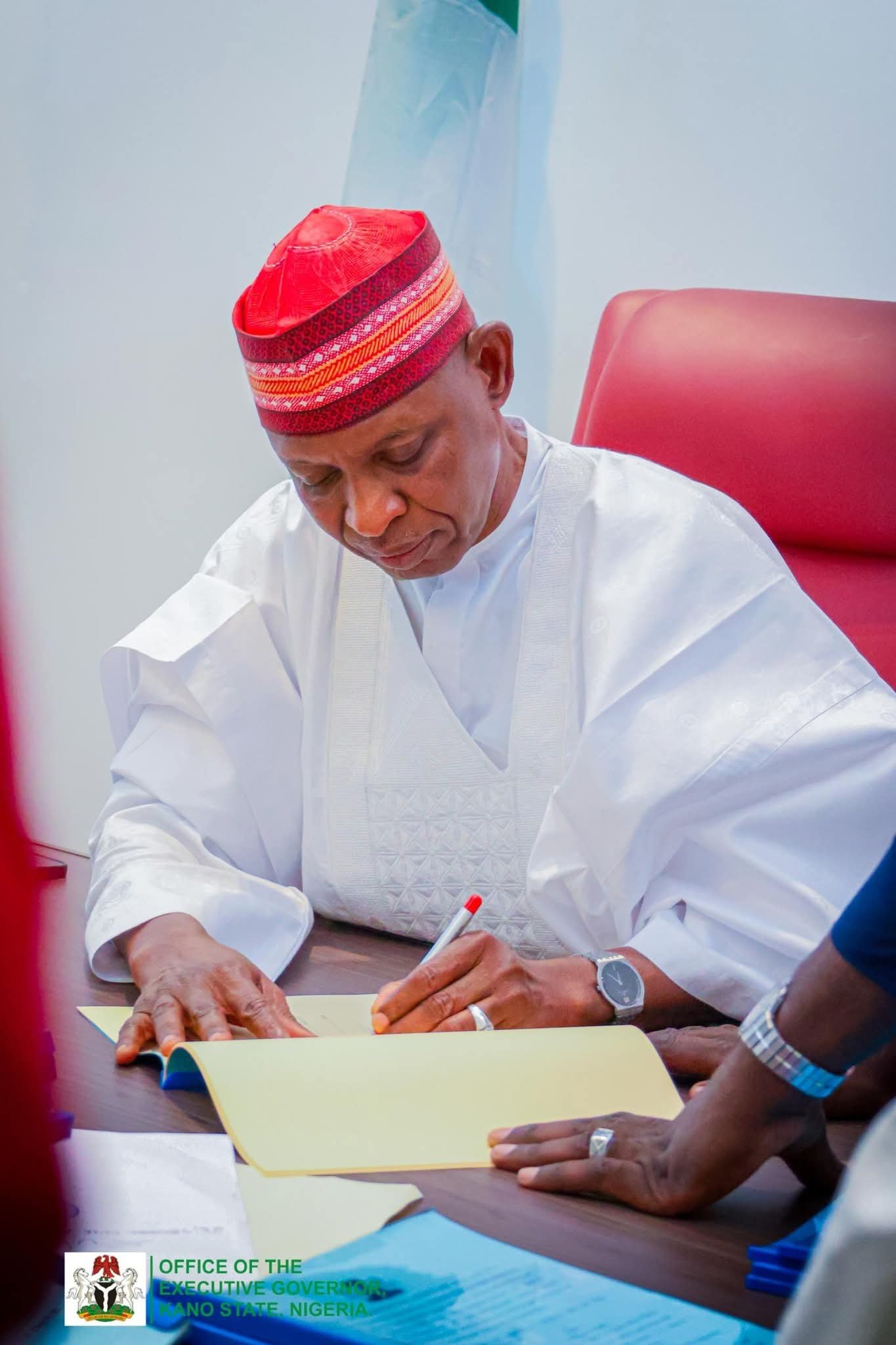2026 Budget: Katsina Allocates 81% For Capital Projects
……… Education, Works, Agriculture, Health other get largest sectoral allocations
………….Targets N88.5 billion internally generated revenue

(Middle) Commissioner for Budget and Economic Planning, Malik Anas
Katsina State has unveiled an N897.8 billion budget for 2026, with 81 per cent earmarked for capital expenditure to drive infrastructure development across the state.
The state Commissioner for Budget and Economic Planning, Malik Anas, gave the breakdown on Tuesday in Katsina, shortly after Governor Dikko Umaru Radda presented the budget to the State House of Assembly.
Anas, who briefed journalists alongside the Commissioner for Information, Dr. Bala Salisu Zango, said the 2026 budget, titled “Building Your Future III,” has a 30 per cent increase over that of 2025.
The commissioner revealed that N730.1 billion, representing 81.32 per cent of the total budget, will go to capital expenditure, while N167.7 billion, 18.68%, will cover recurrent expenditure.
He stated that the budget aims to consolidate ongoing reforms and accelerate the state’s long-term development agenda through infrastructure renewal, human capital development, and social welfare programmes.
“The 2026 budget is N205.6 billion higher than the 2025 fiscal year. This reflects our expanded focus on transforming Katsina through strategic investments in critical sectors,” Anas stated.
The commissioner disclosed that the state projects total revenue of N897.8 billion, ensuring a balanced budget for 2026.
Internally Generated Revenue is expected to yield N88.5 billion, with the Board of Internal Revenue contributing N41.1 billion, MDAs generating N13.1 billion, and self-sustained revenues accounting for N14.2 billion.
From Federal Allocation, the state expects to receive N489.1 billion, comprising statutory allocation (N100.7bn), Value Added Tax (N139.9bn), excess crude (N15.7bn), exchange differential (N8.5bn), and infrastructure support (N60.2bn), among other sources.
The commissioner added that the budget has an opening balance of N28 billion and capital receipts—both external and internal—amounting to N292.1 billion.
He explained that all 34 local government councils contributed to the budget through local aids, grants, and joint expenditures captured within the fiscal plan.
On expenditure distribution, Anas stated that recurrent expenditure of N167.7 billion will cover personnel costs and salaries of N72.2 billion and other recurrent costs N95.5 billion. .
For the capital expenditure totaling N730.1 billion, Economic Sector will get N321.3bn or 44.01%), Social Sector N283.8bn or 38.87%, Administration N122.3bn or 16.75%, and Law and Justice Sector N2.7bn or 0.37%.
The commissioner revealed that six key ministries will receive the largest sectoral allocations of the total budget.
The Ministry of Education (Basic, Secondary, and Higher Education), N156.2 billion (17.41%); Works, Housing, and Transport, N117.1 billion (13.05%); Agriculture and Livestock Development, N78.6 billion (8.76%); Health N67.5 billion (7.52%); Water Resources, N62.8 billion (7.00%); and Environment, N53.8 billion (6.00%).
Together, these six ministries account for N536.3 billion, representing 59.74 per cent of the total budget, while all other MDAs collectively receive N361.4 billion (40.26%).
Anas reaffirmed that the 2026 budget is strategically designed to drive job creation, infrastructure renewal, economic empowerment, agricultural growth, and social inclusion in alignment with Governor Radda’s development blueprint.
He pledged that the Ministry of Budget and Economic Planning will ensure that all projects deliver tangible benefits to citizens.





